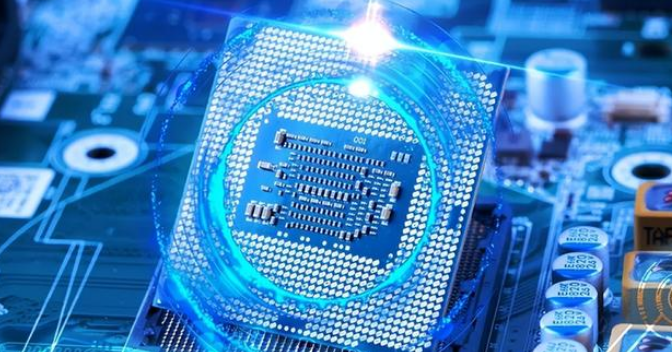
June is usually a bumper month for the semiconductor market, as fabs supply production for the holidays.
However, despite the fact that this year June was five weeks instead of four, data collected by market researcher ICinsights showed a decline. This was the first decline in June since 1976, marking a weakness in the chip market that it called "extraordinary. As a result, the company is revising its forecast for 11 percent growth in 2022 after Gartner's recent sharp downgrade of its market forecast and a longer-term lower forecast from Malcolm Penn of Future Horizons.

"For the first time, the IC market experienced a sequential decline in sales in June of this year, according to WEMA, SIA and WSTS data dating back to 1976," ICinsights said. "Typically, high single-digit or double-digit sales growth has been the pattern for IC sales in June. Even in the weakest previous year (1985), IC sales in June grew by 1 percent. It wasn't until this year that IC sales in June declined."
Longer lead times for chip production mean that these June declines reflect lower orders earlier in the year, especially in a consumer market where the cost-of-living crisis and rising inflation are hitting spending.
"Much of the current weakness in the IC market is due to rising inflation, continued supply chain disruptions and economic concerns arising from efforts by suppliers and OEMs to reduce IC inventory levels," it said. "Several semiconductor companies noted on the 2Q22 financial earnings call that inflation has weakened non-essential consumer spending. The weakness was particularly evident in shipments of consumer PCs, low- and mid-range smartphones, TVs, game consoles and personal electronic devices."
Recent comments from Infineon and Intel echo this point.
"In a difficult macroeconomic environment, Infineon continues to gain momentum with its differentiated product portfolio," said Jochen Hanebeck, Infineon's chief executive officer, adding that Infineon's revenues rose 10 percent to 3.6 billion euros in the third quarter and expects to achieve similar growth to 3.9 billion euros in the fourth quarter. "Rising energy costs, raw material prices and interest rates, ongoing pandemics and geopolitical uncertainty are all hampering economic growth. In some consumer-oriented end markets, demand has weakened recently. We are closely monitoring market developments and are prepared to act quickly."
Some market watchers say the long-term growth in semiconductor demand means historical data no longer applies.
"Structural drivers decarbonization and digitalization continue to lead to high demand for semiconductors," Hanebeck said. "The global trend toward electrification persists. Many countries are now looking to secure independent energy supplies, which will further accelerate the expansion of renewables. We are also benefiting from continued high levels of investment in communications infrastructure, data centers and cloud computing."
However, the decline reflects the historical cycle of the storage chip business.
ICinsights said, "The biggest reason for the overall decline in the IC market in June was the sudden and steep decline in memory IC sales." "As the June decline offset gains in April and May, Samsung, SK Hynix and Micron's financial results in 2Q22 do not easily see Q sharp revenue declines. Micron, however, expects its sales to fall 17 percent in its fiscal fourth quarter ending in August."
The outlook for the semiconductor market is not good. "In 2Q22, IC market growth was flat and below the long-term average. Based on IC Insights' assessment of the company's sales outlook for the remainder of the year, it appears likely that IC sales in the third and fourth quarters will also be below their long-term average growth rates," ICinsights said.
Has the semiconductor downturn begun?
Following June's dire numbers for the semiconductor market, Future Horizons analyst Malcolm Payne warned that the downturn has begun.
"The current semiconductor supercycle is finally nearing its end and the 17th market downturn has truly begun," he said.
"Rumors of a downturn are also beginning to permeate industry consciousness, particularly in commodity markets, where several second-tier foundries and IDMs are reportedly considering scaling back or postponing their planned capacity expansions."
"PC and smartphone shipments, two key drivers of the semiconductor market, both declined in the first half of 2022, with PC shipments now reportedly at their lowest level since 2019 and smartphone shipments expected to experience negative growth in 2022," he said. Intel's recent results underscore this point.
"Products that require specific manufacturing capabilities, such as cars, still show signs of oversupply, but with potential customers now squeezed and struggling with inflation and soaring energy costs, eventually market demand for cars may wane. Not buying that new car," Payne said.
"As demand for consumer MCUs, display drivers, power management and other mass-market chips declines, nearly all established nodal foundries are seeing their customers scale back wafer starts in the second half of 2022, prompting several second- and third-tier foundries to start production. Price cuts. There are even rumors that some companies are offering price reduction offers and price reduction deals for additional wafer orders to maintain their fab utilization. However, we believe that these actions will be futile given the industry-wide pressures and the need for customers to unload bloated inventories caused by supply shortages over the past two years."
This will have an impact on plans to raise foundry prices and build new fabs.
"While TSMC is in a better position overall, due to its market dominance, especially at the frontier - where by definition, frontier capacity is always in short supply - it is not immune to the downturn because of the wide diversity of the end markets it serves," Penn said. "We think TSMC does need to proceed very cautiously... if it executes its plan to raise prices in 2023 in response to current market trends."
